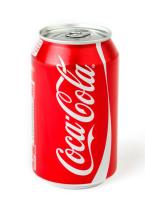In light of the new sugar tax that has been proposed in Ireland and the UK, I’ve decided to base this weeks rant on the topic of sugar and weight gain, is it enough to just tax sugary drinks to combat the alarming rates of obesity?
Firstly, it’s important to know where the proposed tax on sugar came from. The Scientific Advisory Committee on Nutrition (2015) reported sugar-sweetened beverages as a risk factor for weight gain and type 2 diabetes, thereby advising to minimize consumption, which lead both the British and Irish government to introduce a sugar tax on sugary drinks due to be introduced in 2018 to combat the epidemic of obesity.
Why is sugar the bad guy?
Sugars are essentially “empty calories” providing no other nutrition other than energy in the form of calories. Sweetened beverages in particular can be packed with calories, with 2-3 gulps providing the equivalent of a teaspoon of sugar. The concern is raised when adults and kids drink very little water and consume large amounts of juices and fizzy drinks which contributes to their energy intake on top of their already unbalanced diet and inactive lifestyle which ultimately leads to weight gain.
From a biological point of view, there are multiple mechanisms in which sugar; particularly glucose and fructose contribute to weight gain:
- Studies in rats have shown that intermittent access to sugar can cause behavioural changes leading to addiction (Avena, Rada & Hoebel, 2008). Sugar is known to release opiates and dopamine in the brain acting as a stimulant, which for some individuals this “addiction” can be difficult to combat particularly if emotional issues are involved.
- Fructose does not promote satiety by inhibiting a hormone called ghrelin and can cause leptin resistance, which increases our appetite.
What does the new tax entail?
Only soft drinks are being targeted, not juices or chocolate etc.
For drinks over 8g sugar per 100ml: 30c/L

335ml can – Tax: 10c
For drinks 5-8g sugar per 100ml: 20c/L

750ml – Tax: 15c
Small fish in a large pond?
Although I agree with the sugar tax, here’s my problem with it, it does not in any way educate parents or the public in general of WHY sugar is bad and HOW we can reduce our intake/ make healthier swaps. Humans are naturally creatures of habit so they will continue to do the same thing and pay the extra 20 cent without paying much attention which is not what the end goal is.
You could also argue that whilst sugary drinks are being taxed, chips, crisps, doughnuts, biscuits, takeaways etc aren’t being taxed which are just as bad for our health as sugary drinks. Where are the incentives to get kids to be more active? To educate parents about portion sizes? That’s whats ultimately going to reduce obesity rates.
In response to the sugar tax proposed in the UK, Briggs et al. (2017) looked at how the industry of sweet drinks is going to respond to this tax. Reformulating the recipe of sugar sweetened beverages is estimated to reduce yearly obesity rates by 144, 383 whereas increasing the price of the drinks would result in a much lower reduction of 81, 594. This means that the impact this sugar tax will have is ultimately dependent on how industries decide to respond to the tax and not on what would best benefit the general public.
It is also important to note that studies focusing on the impact of sugar on weight gain are inconsistent (particularly among adults) and vary depending on a multitude of factors including study design, age, activity levels and gender. So is focusing on catching one little fish from a sea of fish really going to be of much benefit? Time can only tell.
Great ‘rant’ again Maria✊😁🤓
LikeLiked by 1 person